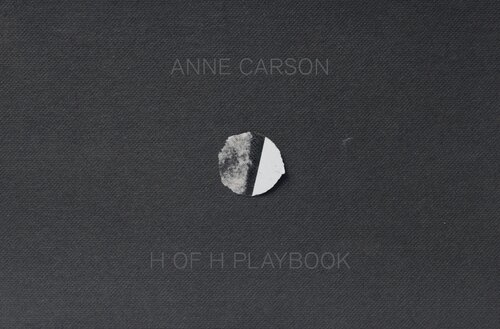H OF H PLAYBOOK BY ANNE CARSON
On its surface, H of H Playbook is a genre-defying retelling of Euripides’ Herakles, the Greek tragedy on the myth of Herakles’ return after his Labours. Carson is, of course, hard at work behind the scenes, accomplishing feats of political, social, and divine sleight of hand. H of H (as she’s redubbed the hero) recounts his Labours and their outcomes: he wears the skin of a lion, brings Theseus back from hell, saves the day, and kills his family. Over the course of the play, he reflects on the slow but definite process of learning that he hasn’t saved civilization, he hasn’t even saved himself, and that in fact, he is an unrecognizable actor in his own life.
Formally, there’s an elegance and simplicity to the language that belies the complex ideas she’s articulating. Her command of the social nuances of English and written dialogue always amazes me, particularly in the classical context she’s chosen to situate herself in. I always feel welcome in her books, even when the topic is something I otherwise wouldn’t give the time of day to. The rhyme schemes, where present, are simple and playful, and the abstract images occasionally flash recognizable forms related to the scenes. Carson’s visual sense for the dramatic is put to good use in a play that bends towards irony and philosophical meandering. The muted colors⏤broken up by the intrusion of bright red or blue⏤are used effectively throughout, adding emotional overtones to large expanses of silence and negative space, to violence happening offstage.
There’s a rabbit hole in this short little text (108 pages), which led me to ongoing scholarly discussion on Euripides’ mythologizing, current political commentary, and referential engagement with various other texts (not the least of which being Autobiography of Red, also by Carson). I experienced, maybe 20 pages in, a slow dawning feeling about this book, which, naturally, happened to be described in it a page or two later: “and deep in the cellar / something drips / hour by hour.”
—Review by Cal Paule


